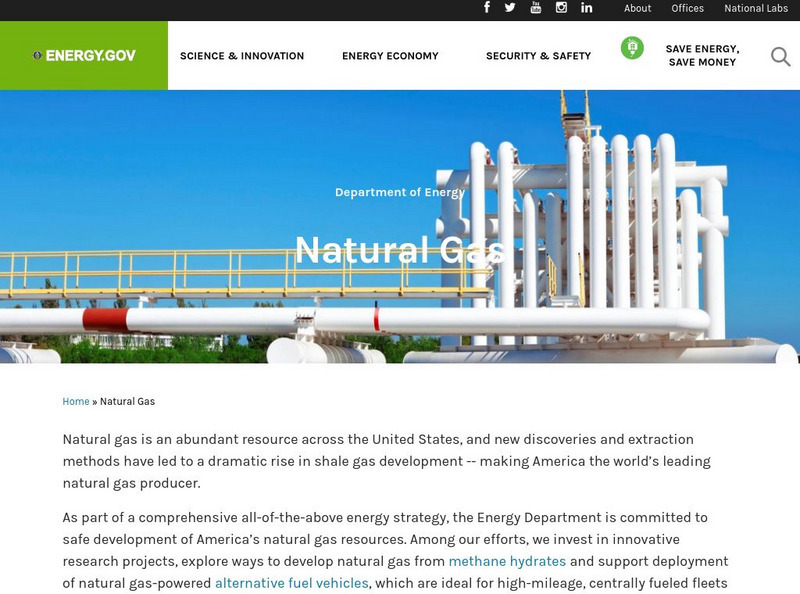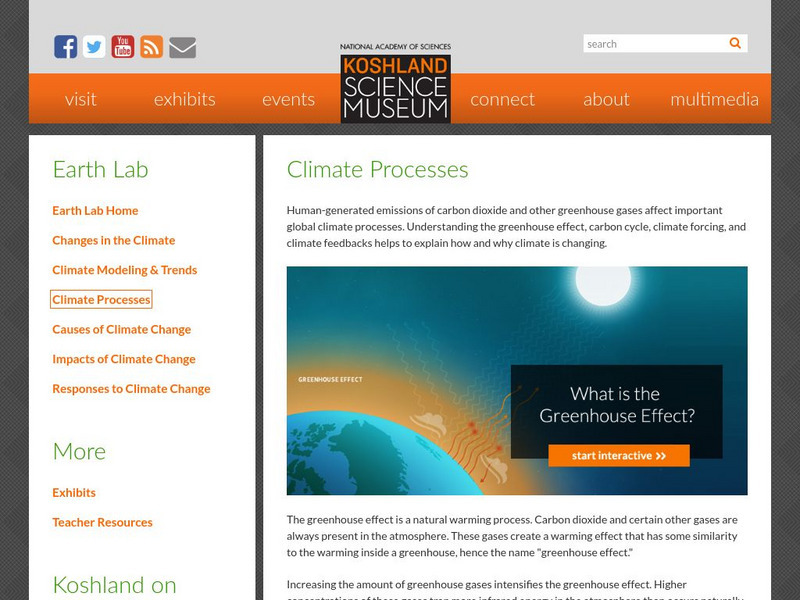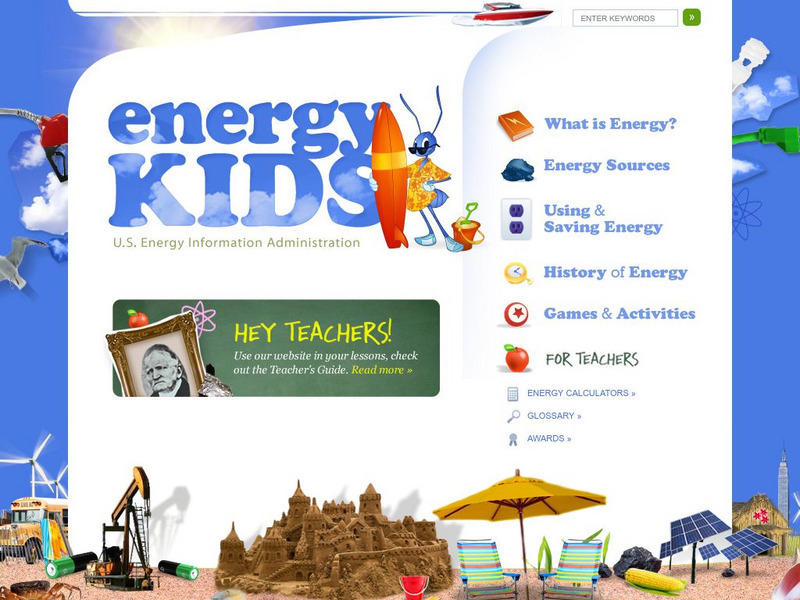American Museum of Natural History
What is the Greenhouse Effect?
Without the greenhouse effect, Earth would not be inhabitable. A thorough online resource describes the greenhouse effect and how it occurs. The source highlights the different types of gases that work together to absorb the sun's...
American Museum of Natural History
Volcanoes Magma Rising
Get ready for an explosive lesson! Learners read and interact with an online lesson describing the characteristics of volcanoes. They study specific historical volcanoes as well as the science of volcanic eruptions using animations and...
American Museum of Natural History
Climate Change
It actually is possible to have too much of a good thing when it comes to climate change. A slide show lesson describes how burning fossil fuels contributes to climate change. Individuals read about the scientific process and the...
American Museum of Natural History
The Amazing Mundo
Rocks and minerals are great on their own, but they also turn into some pretty amazing stuff! An online lesson explains the different types of materials we get from rocks and minerals, including glass, plastic, and coins. An embedded...
US Department of Energy
Department of Energy: Natural Gas
Natural gas is an abundant resource across the United States, and new discoveries and extraction methods have led to a dramatic rise in shale gas development -- making America the world's leading natural gas producer. We invest in...
National Academies of Sciences, Engineering, and Medicine
The National Academies: Our Energy Sources: Natural Gas
Energy production from natural gas is less destructive to the environment than energy produced from coal, but it is still produced from fossil fuels. While advances have been made in reducing its detrimental effects, our resources are...
Other
Mackenzie Gas Project: About Natural Gas
This gives a brief explanation of what natural gas is and tells how it is formed, how we harness it and how much it takes to heat a home or an urban area.
US Energy Information Administration
U.s. Energy Information Administration: Azerbaijan
This interesting site talks about the natural resources in Azerbaijan. Read about this country's oil and natural gas reserves and the importance of these to the economy and politics.
US Geological Survey
Usgs: Energy Resources Program
Find the latest research and publications on the subject of energy, in particular: oil, gas and coal resources.
Other
The Greenhouse Effect: Natural and Amplified Warming
This concise resource presents a thorough drawing which simplifies the explanation of the greenhouse effect into six easy to understand steps.
US Energy Information Administration
U.s. Eia Energy Kids
This extensive resource provides information on renewable energy, nonrenewable energy and energy conservation.
Other
Abc Da Energia
ABC Da Energia describes the many ways that energy can be obtained and conserved. It explains different sources of energy, how each works, and how energy can be saved in our daily lives. Interactive energy-saving activities and games...
US Department of Energy
Doe: Fossil Energy: Education Start Page
Overview of the fossil energy industry (oil, gas, coal) with detailed descriptions of the processes and the work of the people employed in the industry.
Curated OER
National Park Service: Energy and Minerals
A site that reviews over the mining of minerals, oils, and gasses in the National Parks. Understand that programs that are put in place to ensure the mining is done responsibility and does not affect the parks resources.
US Environmental Protection Agency
Epa: Land, Waste, and Cleanup Topics
This site is loaded with information on solid waste and hazardous waste. It includes industries' effects on the environment, waste programs, treatment, control, pollution prevention, recycling, and cleanup programs.
Other
E Jnet: The Basics of Landfills
This website answers most questions reguarding landfills. Learn what landfills are and how they are constructed. In addition to providing responses to several simple uestions, this website includes links to several related resources.
PBS
Pbs Learning Media: Discovering Air
Our understanding about the air we breathe has changed dramatically through time. This illustrated timeline from the NOVA Web site tracks the changing thought on air and the creation of the Periodic Table of the Elements.












